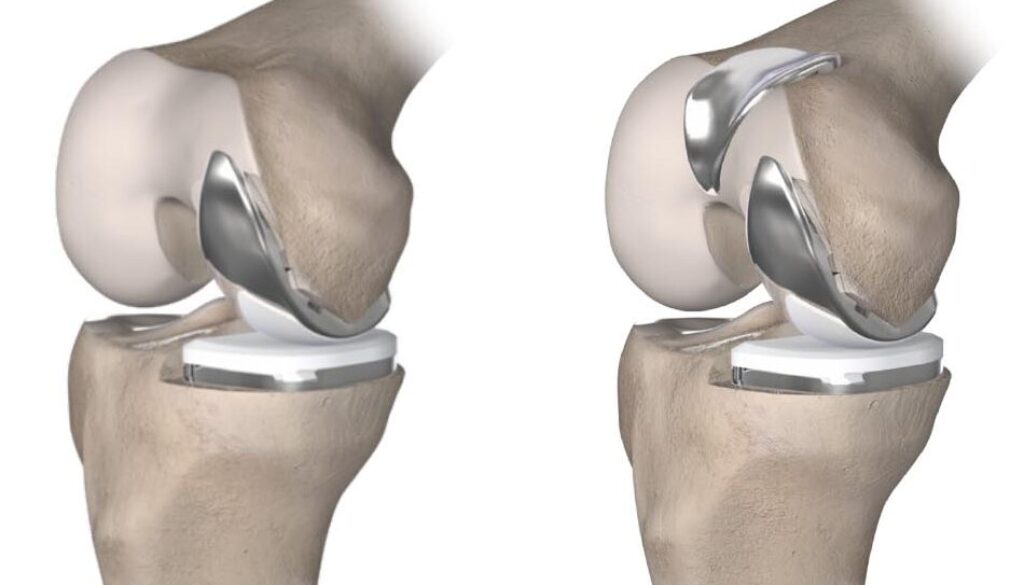HEALTH: Spire Hospital Southampton; New choices, more options in Knee Surgery
Recent developments and new techniques from specialist surgeons improve function and speed recovery in knee patients…
Knee surgery is changing
There has rarely been a more exciting time to be involved with knee surgery as a Surgeon and as a patient. Rapid advances in the development of new, minimal implants and improved patient care maximises what we can achieve in both symptom relief and function. The establishment of specialist knee services, such as that offered by Professor David Barrett at the Spire Hospital, Southampton, is an example of how improvements in technology can be utilised to offer patients more choice of minimal intervention with reliable outcomes that can for the first time include return to sporting activities such as tennis, golf and skiing.
When would knee preservation, partial resurfacing, be appropriate?
Whilst in advanced cases, the entire joint may have to be replaced, there is increasing evidence that arthritis or the bone on bone contact that causes the pain as the knee begins to wear, occurs initially in specific areas of the knee.
At this stage, the rest of the joint is in good condition, and the underlying bone is strong. The technique of partial resurfacing is focused on intervening at this stage, rather than delaying until the whole joint is involved and a complete replacement is required as all the surfaces and the bone below has become involved. Long-term studies show that if the intervention is correctly performed, arthritis will not progress in the joint and a partial resurfacing is all the patient will require to resume their activity, pain free for the significant long term of fifteen to twenty years.
What is involved in a partial resurfacing?
The damaged surface of the bone on the affected part of the knee is carefully removed and the resurfacing consisting of cobalt chrome metal alloy is securely fixed to the area to provide a smooth surface where previously there was roughened bone. This process requires a specialist technique and specific instruments conducted by a surgeon who has undergone expert training. Between the two resurfaced areas of the knee, a polyethylene “cartilage’ acts as shock absorber and spacer.
This minimal approach has many advantages for the patient, where only one part of the knee is resurfaced, 70% of the knee remains natural tissue. All the ligaments of the knee remain intact, including the vital cruciate ligaments, which are sacrificed in total knee replacement.
What are the advantages of a partial resurfacing?
The most significant advantage to the patient of partial resurfacing is the degree of function and the speed of recovery following surgery, coupled with the minimization of pain and the ease of mobilization. Prof. Barrett’s patients usually walk, fully weight bearing, on the day of operation. The surgical incision using minimal access techniques is considerably smaller than that of total knee replacement (TKR) and the speed of recovery is three times more rapid than TKR. When the incision is stable and the patient has ascended and descended stairs, they return home either the same day, or the day after surgery. Within a few weeks patients can expect to resume driving and all the other normal activities of daily living. Importantly, because of the minimal nature of the surgery, any complications following operation are between 50 – 70% less when compared to TKR.
Because all the knee ligaments remain intact, significantly more function and activities will be possible after this intervention. Research shows the knee continues to move in a natural pattern and returning social sports, such as tennis, golf and skiing as well as riding, cycling swimming and dancing are encouraged.
In the longer term, for the active individuals, if wear occurs in the polyethylene spacer or cartilage, this can easily be exchanged for a fresh one in a minimal procedure, equally, should wear later occur in other areas of the knee, these can be additionally resurfaced with similar effect.
Professor David Barrett
Knee Surgeon Bioengineer
Website www.professordavidbarrett.co.uk
Email david@professordavidbarrett.co.uk
Appointments 02380 776877

